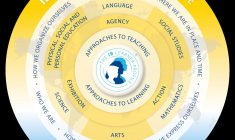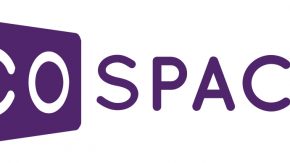PYP – Approaches to Teaching
Approaches to Teaching – Inquiry, Concepts and Conceptual Understanding
In the continued understanding of the enhanced PYP (ePYP) we look at the Approaches to Teaching. The approaches to learning, which was the subject of last edition of PrepTalk, and approaches to teaching are crucial for exploring subject knowledge.
Inquiry
Inquiry, as the leading instructional approach of the Primary Years Programme (PYP) recognises students as being actively involved in their own learning and as taking responsibility for that learning. PYP learning is approached with a spirit of inquiry. Drawing from the transdisciplinary themes and students’ interests, inquiry is an authentic way for students to relate to, explore and understand the world around them.
Inquiry nurtures curiosity and promotes enthusiasm for life-long learning. It encourages students to think, challenge and extend their ideas; it prompts them to reflect and take action. Inquiry is purposeful and authentic. It incorporates problem solving and supports students in achieving personal and shared goals. Inquiry extends students’ learning when the exploration of initial curiosity generates new questions and wonderings with connections being made between personal experiences to local and global opportunities and challenges. Students move from current understandings to new and deeper understandings.
Concepts and Conceptual Understanding
Students build their conceptual understandings by making connections between the new knowledge acquired from their learning and their prior knowledge.
A concept is a “big idea”— a principle or notion that is enduring and is not constrained by a particular origin, subject matter or place in time (Erickson 2008). Concepts represent ideas that are broad, abstract, timeless and universal. Concepts add depth and rigour in student thinking to the traditional “two-dimensional” curriculum consisting of facts and skills. Concepts place no limits on breadth of knowledge or on depth of understanding, and therefore are accessible to every student.
Key concepts provide a lens for conceptual understandings within a unit of inquiry. The PYP identifies seven key concepts that facilitate a conceptual approach to learning. Together, these key concepts form the component that drives inquiries that lie at the heart of the PYP curriculum.
By identifying and investigating key concepts, students learn to think critically about big ideas. This may be done through broad, open-ended questions in an inquiry.
The questions associated with the key concepts are a starting point. They represent an introduction to a way of thinking about our world.
Key concepts provide a lens for conceptual understandings associated with a transdisciplinary theme.
Concepts facilitate depth and complexity in learning and provide a structure for conceptual understandings that build upon the knowledge and skills to extend and deepen student learning. Compared to simply learning or memorizing isolated facts, locked in place and time, conceptual understandings are changeable, contextual, and may be elaborated or reinterpreted (Milligan, Wood 2010).
Concept-based inquiry is a powerful vehicle for learning that promotes meaning and understanding, and challenges students to engage with significant ideas. They are powerful, broad and abstract organising ideas.
Sue Gough – PYP Co-ordinator







